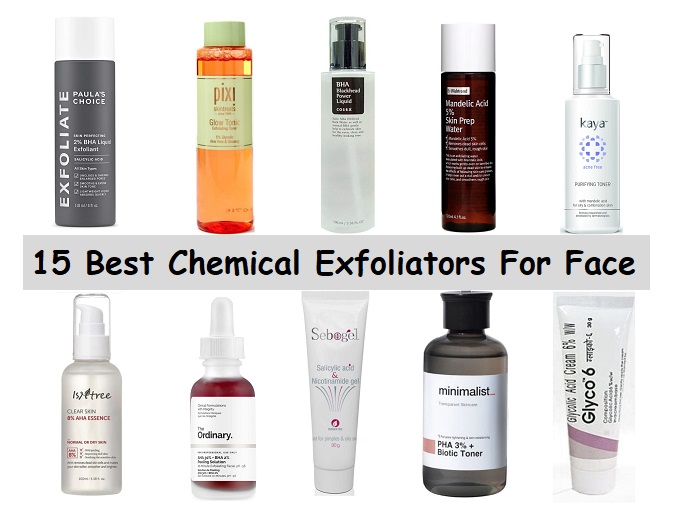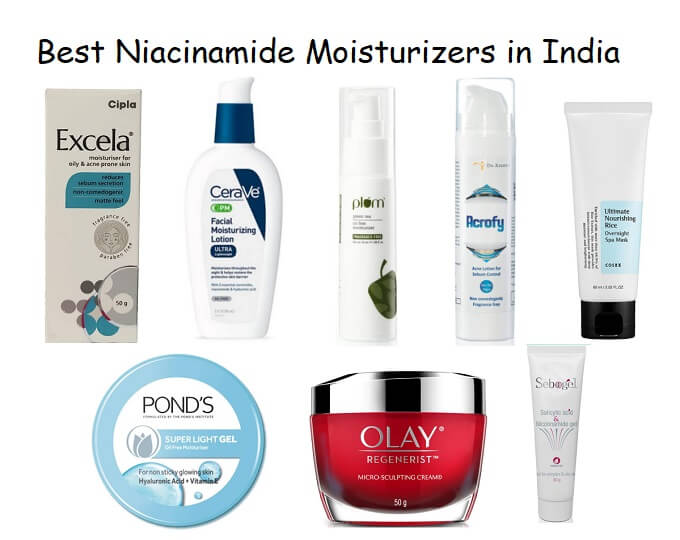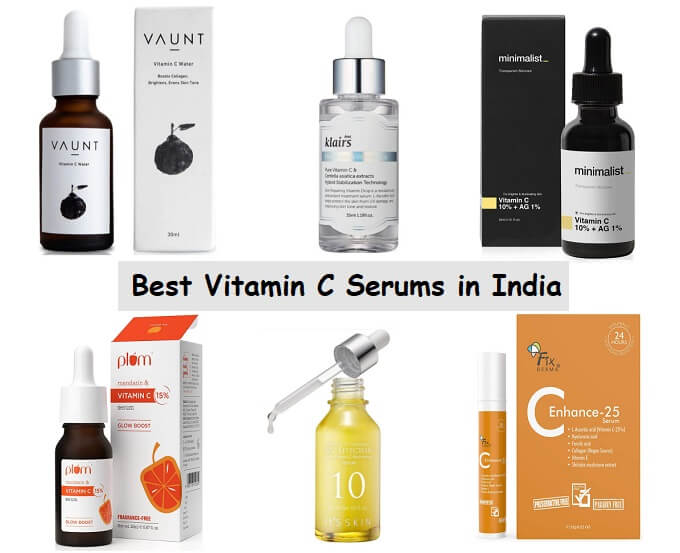We love dermatologists, they’re the best! Whether it’s a minor pimple or something persistent like melasma, they resolve our fears and concerns. However, visiting the dermatologist isn’t always an option, so we’ve compiled a number of their suggestions. But keep in mind that these are not the only condition-specific solutions available. They are the ones that have received the most attention and that dermatologists have approved of.
So brace yourself because it’s going to be a lengthy one. You can scroll down and browse for specific portions if you don’t want to read the entire post.
Table of Contents
Dermatologists Recommended Cleansers
The cornerstone of any skin care regimen is a good cleanser, and no skincare routine can start without it. So let’s have a look at some cleansers that Dermats might suggest to you based on the requirements of your skin.
Foaming Cleansers:
Foaming cleansers are the most common and recommended type of cleansers. They remove dirt and other impurities from the skin without taking away its natural oils or causing irritation. For dry, oily, and combination skin types, dermatologists typically recommend
- Bioderma Sensibio Gel Moussant
- Neutrogena Deep Clean Facial Cleanser
- Sebamed Clear Face Cleansing Foam
Non Foaming Cleansers:
Non-foaming cleansers are the mildest cleansers available; they typically only include the bare minimal amount of surfactants necessary to cleanse the skin. They are recommended for sensitive, irritated, dry, or eczema-prone skin and can be washed off or removed with a wipe. They do not lather much and can be used during winter when your regular cleansers seem too drying.
Non-foaming cleanser products typically suggested by dermatologists include
Active Cleansers:
Medicated or Active cleansers are typically tailored cleansers for specific concerns.
Say, if you’re looking to reduce acne or excess sebum, a salicylic acid face wash like Salsic Foaming Face Wash Or Saliac Face Wash would make great picks.
Benzoyl peroxide prevents acne and destroys bacteria from the get-go. That’s why, a benzoyl peroxide-based face wash like Acne Foaming Cream Cleanser By CeraVe is mostly recommended. But sensitive skin should stay away from these since Benzoyl Peroxide can be harsh on the skin.
If you want to get rid of surface-level problems like blackheads or tanning, use a face wash with glycolic acid, such as Lite Glow Face Wash or Ahaglow Face Wash.
Zinc has anti-inflammatory and antibacterial properties and is frequently advised for the treatment of redness, acne, inflammation, eczema, and other skin conditions. Acnedac Foaming Face Wash is a highly recommended Zinc PCA Face Wash.
Dermatologists Recommended Moisturizers
The key intent of moisturisers is to hydrate the skin and preserve the moisture level.
Basic Moisturizers:
To maintain your skin’s health without any major skin problems, a dermatologist would recommend a basic everyday moisturizer. They would suggest a good moisturiser based on your face type:
If you have combination or somewhat oily skin, a gel-based product like Sebamed Clear Face Gel;
If you have dry skin, a cream-based product like Moskina; or
If you’d like something light and creamy like a lotion, Cetaphil DAM would work nicely.
They each have a unique composition, but they all contain a nice combination of emollients, hydrators, and ingredients that preserve the skin barrier.
Active Moisturizers:
If your skin’s protective barriers have been damaged, then the skin requires something healing, which may include restoring ingredients like ceramides and peptides that assist the healing process.
Aqua oats make an excellent choice here as a ceramide moisturizer as it contains just the right mix of ceramides. It’s also a great pick for folks with dry, sensitive, or irritated skin.
Peptides are amino acids that assist the skin in forming collagen and maintaining the skin’s youthful appearance. So dermatologists often recommend a peptide cream like the Cerave Skin Renewing Night Cream. It helps skin stay hydrated and radiant while providing anti-ageing benefits.
Probiotic Creams also help with healing skin and building healthy barrier function, but they aren’t recommended widely, due to the unavailability of good formulations.
A product like the Hyalugel, which includes hyaluronic acid, might be recommended by your dermatologist if your skin needs more moisture. You should apply a hyaluronic acid moisturizer on wet skin to give it an instant boost of hydration.
Something with Niacinamide could work incredibly well if your skin is dull or if you have large pores and oily skin. Excela Moisturiser by Cipla is a great Niacinamide-based Moisturizer to start with.
You’ll probably ask your dermatologist for a Retinol cream if you have ageing skin or if you wish to further your skincare routine. And they’ll suggest products like the Ega Night Cream, which will assist in increasing the skin’s elasticity while reducing fine lines and dark spots.
Dermatologists Recommended Sunscreens
Everyone’s daily regimen must include sun protection. The majority of teenagers’ skincare routines begin with a simple two-step programme, a cleanser and a sunscreen. Since that’s all that’s required to preserve skin health.
But it can be difficult to pick the perfect sunscreen so it’s a good idea to pick them based on the needs of your skin and the occasion.
Chemical Sunscreens:
Chemical Sunscreen absorbs UV Radiation and transforms it into heat that then dissipates, as opposed to mineral sunscreens, which sit on top of the skin and reflect sunlight. Some of the chemicals that chemical sunscreen contains include Avobenzone, Octinoxate, and Oxybenzone. If you plan on swimming or detest the white cast, they are preferable. Dermatologists advise using a chemical sunscreen like the Tvaksh Face Guard Silicon Sunscreen Gel Spf 30+ Pa+++, which works well even for the most sensitive of skins.
Mineral Sunscreens:
Although mineral sunscreens have a tendency to leave a white cast, they are very effective at preventing UV damage. Melasma sufferers and individuals with sensitive skin are often recommended Mineral or Physical sunscreen. Given the fact that they break down less frequently than chemical sunscreens, they also last longer. So dermatologists will typically suggest La Shield Sunscreen Gel Spf 40 or Suncros Matte Finish Soft Spf 50+ Gel.
Hybrid Sunscreens:
These days, we also have hybrid alternatives; hybrid sunscreens contain both chemical and mineral filters that reflect and absorb different UV rays. The broad spectrum IPCA Acne UV Gel Sunscreen also helps guard against all kinds of UV rays and blue light damage. Plus, it is non-comedogenic, so those with acne skin can use it without worry.
Tinted Sunscreens:
Some prefer tinted sunscreens, something like the Cipla Rivela Lite Bronze, they not only give a matte effect but also protect against blue light damage since they contain zinc oxide and titanium dioxide. While some like to use sunscreen sticks for reapplication as it’s hassle-free to carry around.
But caring for your face isn’t enough; UV rays can also harm your body, so you could use body sunscreens like Nivea Spf 50 Or Vaseline Spf 30, they both double as body lotions.
Dermatologists Recommended Treatments
For targeted skin concerns, like dermatitis or hyperpigmentation or textured skin, you’ll have to consider certain treatments. But it’s a good idea to make an appointment with a dermatologist to appropriately tackle such concerns (even if you know what they might suggest, visit them simply for the sake of mental peace). Also, you shouldn’t start using some of these treatments without running a patch test because they are rather strong.
Salicylic Acid For Acne:
Sebogel would be helpful if you have oily skin that is prone to acne. Salicylic acid, which is the key ingredient here, gently exfoliates the skin while fighting acne-causing germs. Sebogel will aid in regulating sebum because it also contains Niacinamide. Dermatologists most often don’t recommend serum formulations, but it couldn’t hurt to try a good quality commercially available Salicylic Acid Serum.
Niacinamide For Oil Control:
Niamax Gel is the best alternative available if you want a pure Niacinamide product. It helps soothe the skin, controls excess sebum production and aids in the prevention of acne spots. Likewise, there are tons of great Niacinamide Serums that come in various strengths of 5% and 10% that can target one’s skin concerns.
Glycolic Acid For Hyperpigmentation:
Glycolic Acid is a potent exfoliant that helps with clearing dead skin cells, acne marks, and hyperpigmentation. Using a glycolic acid product like Glyco 6 is suggested if you have comedones or a great deal of skin texture.
Retinol For Anti-Aging:
And generally, for retinol, you’d require a prescription but Differin happens to be an OTC product that Dermats do recommend.
Azelaic Acid For Melasma:
According to a study, 20% Azelaic Acid works superior well than 2% Hydroquinone for Melasma. Consider Aziderm if you have tough acne scars, warts, or calluses. For hyperpigmentation and severe acne marks, this Azelaic Acid Product is often suggested. But it’s definitely not something dry skin or sensitive skin should try.
Lactic Acid For Gentle Exfoliation:
Lacsoft, which contains lactic acid, should help if you’re anxious about minor pigmentation or blemishes. It’s a milder AHA variant, and it is also very moisturising. Good Lactic Acid Serums are also easily available in the market.
Hyaluronic Acid For Plump Skin:
However, Hyalugel Plus will help if all you need is plump and bouncy skin, because hyaluronic acid in the Hyalugel draws moisture to the skin, giving the skin a more vibrant appearance. L’oreal Revitalift 1.5% Hyaluronic Acid Serum is also a great beginner Hyaluronic Acid Serum that comes in smaller packs.
Vitamin C For Glowing Skin:
Applying Vitamin C Serum or Gel in the morning will improve the performance of your sunscreen because it is an antioxidant and helps prevent free radical damage in addition to helping you get the most glowing complexion. And Minimalist Vitamin C Serum is an excellent option. C-Vit Liposomal Serum is also a very effective Vitamin C product that a lot of dermatologists suggest.
Body care
While some of the products discussed above can be used on the body as well, dermatologists do prescribe certain body lotions. Nmf E Daily Moisturising Lotion and Aveeno lotions are some of their favourite recommendations. They maintain the epidermis of the skin, which gets drier as we age, and keep the skin nourished and healthy. These can be used on all skin types and across all seasons.
Moisturex cream is a medicated lotion that’s often recommended by Dermatologists if you are suffering from Keratosis Pilaris. It contains urea and lactic acid, which helps in removing tough dead skin cells that lead to darkened elbows and cracked heels. It is highly beneficial in treating hyperkeratosis, or excessively rough skin.
Niacinamide Body Lotions are also in demand for brightening and smoothening the skin tone.
Lip Care
Naturally, we cannot overlook our lovely lips. As water alone won’t keep them hydrated in the winter or protect them from sun damage, Dermats recommends using NMF E Lip Care and Chaptex Lip Balm, both of which contain hydrating ingredients along with sunblock.
Bottom Line
Though not a comprehensive list, we hope that these Dermatologists’ recommendations can assist with your product selection. You could also pick products from the Top Dermatologists Recommended Skincare Brands.
In addition to using skincare products, it is essential to follow good healthy habits for healthy glowing skin. Whatever you do, if one doesn’t have good eating habits, good sleep and overall a good lifestyle, it is sure to have an effect on your skin. So take care of your health while also incorporating skincare products to achieve healthy skin.

Sejal Jain is a passionate beauty content creator at TheBeautyInsideout. She believes that skincare is not just a superficial thing but more like an expression of self-love and respect for your body and yourself.


